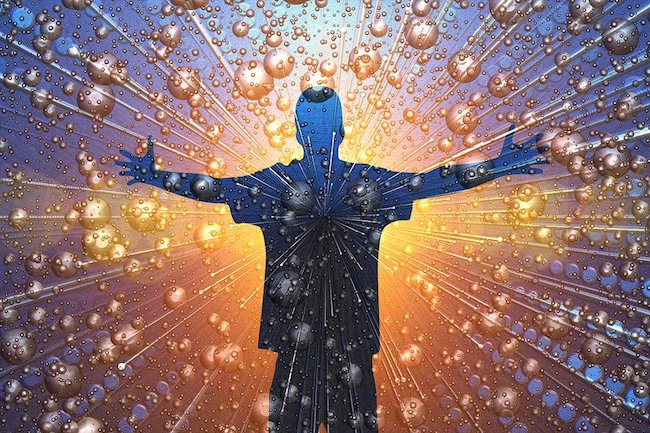The Modern World Is in Danger of Amusing Itself to Death by Neil Postman for Russia-Insider
“Just about anyone has access to a public library (at least in America). In that library we find the greatest, most profound, most illuminating literature that human beings have so far produced. Do most people read these books? Have you read Cervantes? Have you read the sonnets of Shakespeare? Have you read Hegel or Nietzsche? Their books are in the library, you have access to them, why have you not familiarized yourself with this literature? Even if you have, I think you will agree that most people have not. Why?” — Neil Postman
What Orwell feared were those who would ban books. What Huxley feared was that there would be no reason to ban a book, for there would be no one who wanted to read one.

Orwell feared those who would deprive us of information. Huxley feared those who would give us so much that we would be reduced to passivity and egoism.
Orwell feared those who would deprive us of information. Huxley feared those who would give us so much that we would be reduced to passivity and egoism.
Orwell feared that the truth would be concealed from us. Huxley feared the truth would be drowned in a sea of irrelevance.

Orwell feared we would become a captive culture. Huxley feared we would become a trivial culture, preoccupied with some equivalent of the feelies, the orgy porgy, and the centrifugal bumble puppy.
As Huxley remarked in Brave New World Revisited, the civil libertarians and rationalists who are ever on the alert to oppose tyranny “failed to take into account man’s almost infinite appetite for distractions”. In 1984, Huxley added, people are controlled by inflicting pain. In Brave New World, they are controlled by inflicting pleasure.
In short, Orwell feared that what we hate will ruin us. Huxley feared that what we love will ruin us.
— § —
A new technology sometimes creates more than it destroys. Sometimes, it destroys more than it creates. But it is never one-sided. The invention of the printing press is an excellent example.
Printing fostered the modern idea of individuality but it destroyed the medieval sense of community and social integration. Printing created prose but made poetry into an exotic and elitist form of expression. Printing made modern science possible but transformed religious sensibility into an exercise in superstition. Printing assisted in the growth of the nation-state but, in so doing, made patriotism into a sordid if not a murderous emotion.
Another way of saying this is that a new technology tends to favor some groups of people and harms other groups. School teachers, for example, will, in the long run, probably be made obsolete by television, as blacksmiths were made obsolete by the automobile, as balladeers were made obsolete by the printing press. Technological change, in other words, always results in winners and losers.
The Benedictine monks who invented the mechanical clock in the 12th and 13th centuries believed that such a clock would provide a precise regularity to the seven periods of devotion… here is a great paradox: the clock was invented by men who wanted to devote themselves more rigorously to God; and it ended as the technology of greatest use to men who wished to devote themselves to the accumulation of money.
Technology always has unforeseen consequences, and it is not always clear, at the beginning, who or what will win, and who or what will lose. …Gutenberg thought his invention would advance the cause of the Holy Roman See, whereas in fact, it turned out to bring a revolution which destroyed the monopoly of the Church.
The world in which we live is very nearly incomprehensible to most of us. There is almost no fact …that will surprise us for very long, since we have no comprehensive and consistent picture of the world which would make the fact appear as an unacceptable contradiction.
In a world without spiritual or intellectual order, nothing is unbelievable; nothing is predictable, and therefore, nothing comes as a particular surprise.
The medieval world was… not without a sense of order. Ordinary men and women… had no doubt that there was such a design, and their priests were well able, by deduction from a handful of principles, to make it, if not rational, at least coherent.
The situation we are presently in is much different. …sadder and more confusing and certainly more mysterious. …There is no consistent, integrated conception of the world which serves as the foundation on which our edifice of belief rests. And therefore… we are more naive than those of the Middle Ages, and more frightened, for we can be made to believe almost anything.
In the Middle Ages, there was a scarcity of information but its very scarcity made it both important and usable. This began to change, as everyone knows, in the late 15th century when a goldsmith named Gutenberg, from Mainz, converted an old wine press into a printing machine, and in so doing, created what we now call an information explosion. …Nothing could be more misleading than the idea that computer technology introduced the age of information. The printing press began that age, and we have not been free of it since.
But what started out as a liberating stream has turned into a deluge of chaos. …matters have reached such proportions today that for the average person, information no longer has any relation to the solution of problems. …The tie between information and action has been severed. …It comes indiscriminately, directed at no one in particular, disconnected from usefulness; we are glutted with information, drowning in information, have no control over it, don’t know what to do with it.




